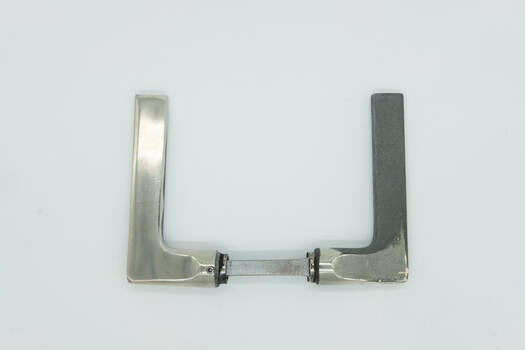Building: Building of the former editorial office of Borba [Struggle], the central press organ of the Communist Party of Yugoslavia (from 1952 League of Communists of Yugoslavia).
Background: Borba magazine was founded in Zagreb in 1922 as a theoretical paper of the Communist Party of Yugoslavia (CPJ), and from 1945 it became the central party paper. Borba was also printed during World War II, mostly in the territories liberated by the partisan army. After the war, the editorial office moved to Belgrade, the capital of socialist Yugoslavia.
The Borba building is located in the center of Belgrade. It is one of the buildings that clearly reflects the social changes of the 20th century. The building was erected in 1938 for the use of the weekly Vreme [Time], which at that time was under the control of the Yugoslav King Alexander I. The building was also used for the publication of the newspaper "The Time". After the liberation of the country in 1945, the editorial office of Borba moved in. Borba was among the oldest continuously published press products of the Communist Party of Yugoslavia. The square where Borba's building is located was renamed Marx Engels Square after World War II, and the new building of the Yugoslav Trade Union Federation was also built on this square. Due to its proximity to the Yugoslav (now the Serbian) government building, the square developed into the central public space for holding military parades or manifestations of the Yugoslav labor movement, such as the May Day celebrations. Finally, in the 1990s, this square became the central place for anti-war demonstrations.
With the disappearance of socialist Yugoslavia, the Borba leaf slowly but surely disappeared as well. Since 1992, the former Marx Engels Square has been called Nikola Pašić Square, named after a conservative politician from the period before and after the First World War. The building of Borba is nowadays mainly used by right-wing media, but in a small working room there is also the editorial office of the internet portal MAŠINA, published by our partner organization "Kontekst".
